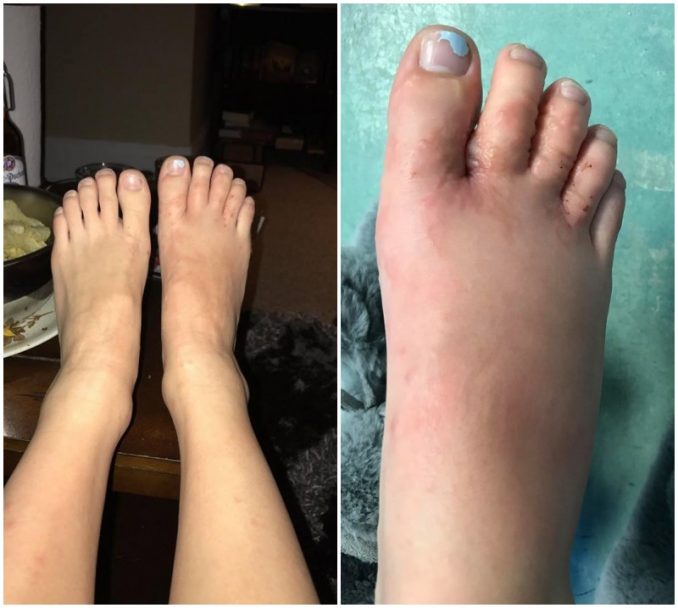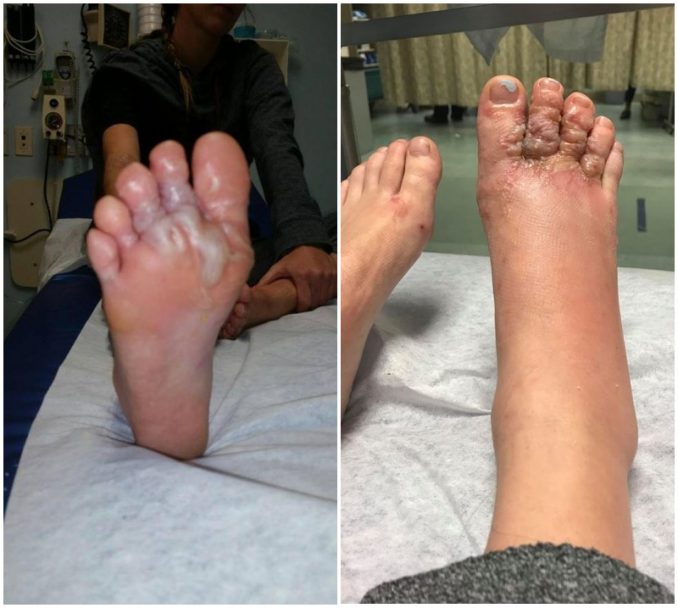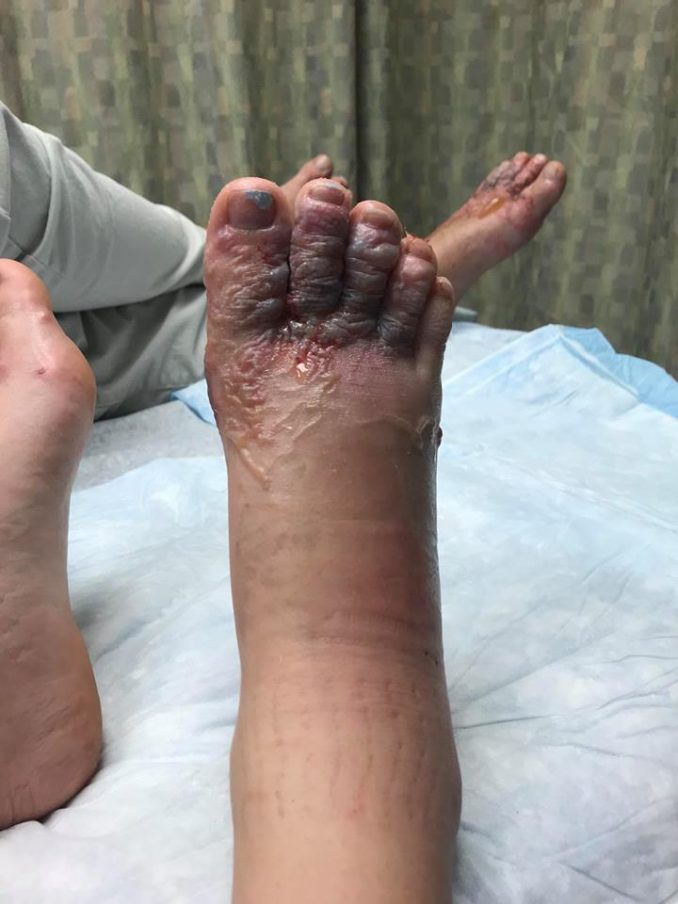A Couple Saw What Happened To Their Feet After A Beach Day, And Doctors Refused To Help Them!
It’s easy to see why the Caribbean is one of the most popular vacation spots for those looking to escape the winter weather.
But what these travelers experienced in Punta Cana was far from relaxing.
Mosquito bites are one thing, but coming back from a beach walk with parasites embedded in your feet is a whole other kind of challenge. That’s what reportedly happened to Katie Stephens and Eddie Zytner, a couple from Ontario who was vacationing in Punta Cana in the Dominican Republic, according to a Canadian news station.
After an enjoyable vacation at the IFA Villas Bavaro Resort in Punta Cana, 22-year-old Katie Stephens, and 25-year-old Eddie Zytner, discovered that their feet were extremely itchy when they got home. The reason for their scratchy feet is so shocking that you might lose your lunch.
The couple initially dismissed the itching as nothing more than sand fleas, which are frequently encountered by those who spend a lot of time at the beach. However, when Zytner awoke one Saturday morning to find his feet were not only itchy but swollen, he decided to go to the hospital.

She posted some extremely awful images on Facebook in an attempt to warn others, and they are difficult to look at if you have even the slightest hint of squeamishness.
“My boyfriend and I recently got back from Punta Cana to discover that we both have larva migrans, in other terms worms in our feet, If your feet become incredibly itchy please get it checked out right away since we simply thought it was just bug bites and it became worse as each day passed.” Stephens wrote on Facebook, warning and advising everyone to “Please be careful when in the sand” and “wear shoes! ”Addressing the post to anyone traveling “somewhere tropical”
The skin condition known as “cutaneous larva migrans” (CLM) is brought on by the larvae of several nematode parasites belonging to the tiny hookworm family. Per Medscape, the most prevalent tropically acquired dermatosis is CLM, which is caused by parasites penetrating the skin.

The southern portion of the United States, as well as tropical and subtropical conditions, are where hookworms are most frequently found, although because of worldwide travel, they are no longer restricted to these regions. Walking on warm, moist sand, where the worms have a chance to enter the skin, can result in worm infection.
The couple soon noticed major swelling, bumps, and blisters on their feet. However, this was still just the beginning of their nightmare, the Elite Daily reported. The early symptoms include itching but the irritation got much worse, after a few days, it eventually erupted into a much more severe condition.

The doctors had no real explanation for the couple’s discomfort, and after being sent home, their conditions only continued to worsen. The skin on their feet started to swell and blister. The couple’s final diagnosis came from a doctor who had previously treated a foreign traveler with a comparable condition. Still, their issues were far from resolved. But prior to receiving a proper diagnosis and a plan of treatment, the couple that went to the hospital had to see three separate doctors, as reported by CTV News.
“I have dozens of worms in my feet, and so does Katie. It’s kind of sickening to think about, “It’s pretty gross. It’s something living in your body that’s not supposed to be there.” Eddie said told Windsor Star.
Fortunately, hookworm infection is easily treated with ivermectin, an anti-parasitic medication.
After Health Canada denied the request the couple’s doctor made for the medicine, Zytner’s mother reportedly drove to Detroit to purchase the drug.
“To top it all off, Health Canada denied our request to receive the medicine (ivermectin) we needed to treat our infection and (we) were forced to get medicine from the states, “ Katie explained, adding some sarcastic thank you to Canada Health Care, “Thank you Canada for your lovely healthcare you provide for us!”

Ivermectin is a byproduct of the anti-parasitic drug avermectin, whose inventors were honored with the 2015 Nobel Prize in Physiology or Medicine for their work.
Although hookworm is fairly treatable, it nevertheless poses a major threat to a large number of people worldwide. Between 576 and 740 million people are presently infected, according to the CDC.
When a person is exposed to a parasite like a hookworm repeatedly, it can cause more severe pain and itching.
Many infected individuals may not exhibit symptoms, but the CDC reports that they nonetheless suffer from protein shortage and blood loss, which causes anemia. Children with persistent infections may lose sufficient amounts of iron and protein to adversely impact their growth and mental development.
Neglected tropical diseases include hookworm and a variety of other parasitic disorders.
Such illnesses tend to infect poorer populations in developing countries, which is why so many people go without treatment.
But many neglected tropical diseases could potentially be controlled with existing intervention techniques such as mass drug administration.
Watch the videos below for more details:
Sources: Taphaps, Windsorstar, Elitedaily, Medscape